I read the book CS:APP(Third Edition) and in Section 3.6.1 Condition Code. It says:
CF: Carry flag. The most recent operation generated a carry out of the most significant bit. Used to detect overflow for unsigned operations.
OF: Overflow flag. The most recent operation caused a two's-complement overflow--either negative or positive.
But I have the following code. I compiled and executed it. Something different happened.
int main() {
char x = 0x66;
char y = 0x39;
char x_bit_not = ~x;
char x_not = !x;
char x_bit_and_y = x & y;
char x_and_y = x && y;
char x_bit_or_y = x | y;
char x_or_y = x || y;
int x1 = (1<<31)-1;
int y1 = 1;
int sum_x1_y1 = x1 + y1;
int diff_x1_y1 = x1 - y1;
int diff_y1_x1 = y1 - x1;
unsigned int x2 = (1<<31)-1;
unsigned int y2 = 1;
unsigned int sum_x2_y2 = x2 + y2;
unsigned int diff_x2_y2 = x2 - y2;
unsigned int diff_y2_x2 = y2 - x2;
}
The arithmatic expression int diff_y1_x1 = y1 - x1; yeilds 0x80000002 without a carry out from the msg. But after this statement, CF is equal to 1.
The arithmatic expression unsigned int sum_x2_y2 = x2 + y2; does not even involve signed variants but after this statement, OF is equal to 1. How does this happen?
Also, I have got another picture:
 And the caption says CF = Cin XOR Cout and OF = Cn XOR Cn-1. What does this mean? Is CS:APP wrong? Or just CS:APP does not contain all the conditions?
And the caption says CF = Cin XOR Cout and OF = Cn XOR Cn-1. What does this mean? Is CS:APP wrong? Or just CS:APP does not contain all the conditions?